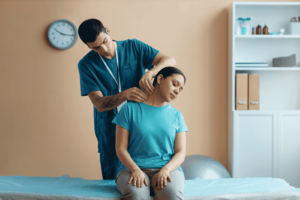Alcohol use disorder can lead to relationship issues, financial struggles, and increase the risks of developing severe health complications like liver disease. An alcohol rehab center can help you regain control over your life if you’re struggling with the disorder. Here’s an in-depth look at the condition and when to seek professional help:
Understanding Alcohol Use Disorder
Alcohol use disorder (AUD) is a medical condition characterized by the compulsive intake of alcohol and the inability to regulate consumption despite its adverse impact on your health, social life, and occupation. A person with this condition typically doesn’t know how or when to stop drinking.
When To Consult a Professional
AUD is a treatable medical condition. You can recover with medical interventions and support from a reliable alcohol rehab facility. It may be time to seek professional help if you experience the following signs and symptoms:
- Loss of control: Inability to limit your drinking. This often causes excessive consumption and impairs judgment.
- Neglecting responsibilities: Inability to focus on tasks at home, work, or school because of alcohol problems.
- Physical dependence: Needing alcohol to perform basic tasks like working and experiencing withdrawal if you don’t consume it.
- Cravings: Experiencing frequent strong compulsions to drink alcohol.
- Increased alcohol consumption: You may be frequently increasing the amount of alcohol you consume to feel its effect.
- Interpersonal problems: Challenges maintaining relationships with family, friends, and colleagues because of alcohol use.
- Blacking out: This often occurs when one drinks excessively. You may not remember events that happen after drinking too much.
- Time loss: Spending a lot of time drinking or recovering from hangovers.
- Secrecy: Hiding alcohol in unlikely places and drinking in secret.
- Disinterest: Loss of interest in hobbies to create time for drinking.
Professionals diagnose AUD on a spectrum ranging from mild to severe, depending on the number of symptoms presented and their severity. You may have mild AUD if you only experience a few symptoms and severe AUD if you experience many or all of them. Seek a professional diagnosis if you suspect you have AUD to determine where you fall and the appropriate treatments.
Risk Factors for AUD
Some people are more predisposed to developing AUD than others because of the presence of risk factors. While not everyone with these risk factors develops AUD, they’re more vulnerable to the condition than the general population. This makes it necessary for them to be careful when consuming alcohol. Here are common risk factors:
- Age: People who start drinking before age 15 may be three times more susceptible to AUD than those who wait until age 21.
- Trauma and stress: A history of physical, emotional, or sexual abuse and high-stress levels can contribute to AUD. Trauma victims and people in stressful environments can use alcohol as a coping mechanism to numb the pain or relax. There’s a high risk of dependence or excessive consumption when used as a means of escape.
- Family history: Children exposed to their parents’ unhealthy drinking patterns may be at a high risk of developing AUD.
- Mental health conditions: Individuals with conditions like depression, post-traumatic stress disorder (PTSD), and attention deficit hyperactivity disorder (ADHD) risk developing AUD because they may rely on alcohol to alleviate emotional distress.
Treatments for AUD
You can undergo inpatient or outpatient AUD treatment, depending on your preferences and the severity of your condition. People with severe AUD often need inpatient treatment for more specialized care. Treatments you may find in an inpatient or outpatient setting include:
- Medications: Medications like acamprosate and naltrexone may be prescribed to help manage alcohol cravings and reduce the risk of relapse. Acamprosate can help rebalance the brain chemicals damaged by long-term alcohol use. Naltrexone can block the feel-good response caused by alcohol, reducing cravings. A professional will determine the appropriate medications after assessing your situation.
- Therapy: Cognitive behavioral therapy (CBT) and motivational enhancement therapy (MET) can help you identify and modify unhealthy thoughts and behaviors contributing to alcohol use.
- Support groups: Groups like Alcoholics Anonymous (AA) can give you a sense of community and provide ongoing support throughout your recovery journey.
Seek Help From an Alcohol Rehab Center
AUD can have severe social, physical, and psychological consequences. Managing the condition can give you back control over your body, life, and relationships. Seek help from a reputable alcohol rehab center if you present the symptoms discussed above. Seeking professional help is a key step toward achieving long-term sobriety.





Be First to Comment